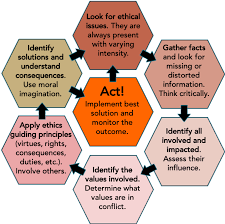Frequently Asked Questions About Strategic Management Decision Making
- What are the stages of strategic management decision?
- What are the four types of strategic decisions?
- What are the characteristics of strategic management decisions?
- What is an example of a strategic management decision?
What are the stages of strategic management decision?
The stages of strategic management decision are as follows:
- Analysis: The first stage is to analyze the current situation, including the internal and external environment. This involves analyzing the organization’s strengths, weaknesses, opportunities, and threats (SWOT analysis). It also involves analyzing the industry and market trends.
- Strategy Formulation: Based on the analysis, a strategy is formulated. This involves identifying the organization’s mission, vision, and goals. It also involves identifying the strategic options available and selecting the best one.
- Implementation: Once a strategy has been formulated, it needs to be implemented. This involves developing an action plan that outlines how the strategy will be executed. It also involves allocating resources and assigning responsibilities.
- Evaluation: The final stage is to evaluate the effectiveness of the strategy. This involves monitoring progress towards achieving goals and objectives. It also involves making adjustments to the strategy if necessary based on feedback received during implementation.
These stages are iterative in nature and require ongoing monitoring and adjustment as circumstances change over time. Effective strategic management decision-making requires a combination of analytical skills, creativity, leadership ability, and effective communication skills.
What are the four types of strategic decisions?
The four types of strategic decisions are:
Business-level strategy: This refers to the decisions made by a company to compete effectively in a particular market or industry. It involves identifying the target market, understanding customer needs, and creating a unique value proposition that differentiates the company from its competitors.
Corporate-level strategy: This refers to the decisions made by a company to manage its portfolio of businesses and allocate resources across them. It involves deciding which businesses to invest in, which ones to divest, and how to create synergies between them.
International strategy: This refers to the decisions made by a company to expand its operations beyond its domestic market. It involves deciding which countries or regions to enter, how to adapt products and services for local markets, and how to manage global operations.
4. Digital strategy: This refers to the decisions made by a company related to digital technologies, such as e-commerce, social media, and mobile apps. It involves deciding how to leverage these technologies to improve customer experience, increase efficiency, and drive innovation.
What are the characteristics of strategic management decisions?
Strategic management decisions are typically characterized by the following characteristics:
- Long-term orientation: Strategic management decisions are focused on achieving long-term goals and objectives, rather than short-term gains or immediate results.
- Cross-functional nature: Strategic management decisions involve multiple departments and functions within an organization, requiring collaboration and coordination across different areas of expertise.
- Comprehensive scope: Strategic management decisions consider all aspects of an organization, including its internal resources and capabilities, as well as external factors such as competition, market trends, and regulatory environment.
- Risk-taking: Strategic management decisions often involve taking calculated risks in order to achieve desired outcomes.
- Impact on the organization’s future direction: Strategic management decisions have a significant impact on the future direction of an organization, shaping its vision, mission, and overall strategy for success.
- Involvement of top executives: Strategic management decisions are typically made by top executives within an organization who have the authority to set the overall direction and strategy for the company.
Overall, strategic management decisions require careful consideration and analysis of all relevant factors in order to make informed choices that will guide an organization towards long-term success.
What is an example of a strategic management decision?
An example of a strategic management decision could be a company deciding to enter a new market or launch a new product line. This decision would involve extensive research and analysis to determine the potential profitability and feasibility of the venture, as well as assessing the strengths and weaknesses of competitors in the market. The decision would also need to align with the overall goals and objectives of the company, taking into consideration factors such as available resources, risk tolerance, and long-term sustainability. The implementation of this decision would require careful planning and execution, involving various departments within the organization working together towards achieving the common goal.



